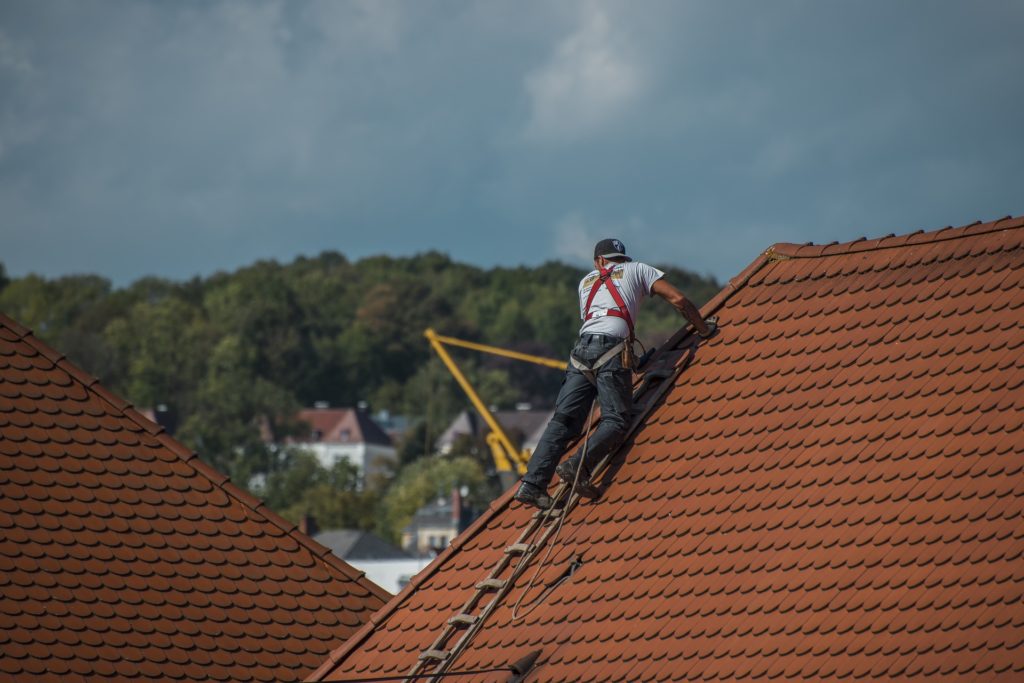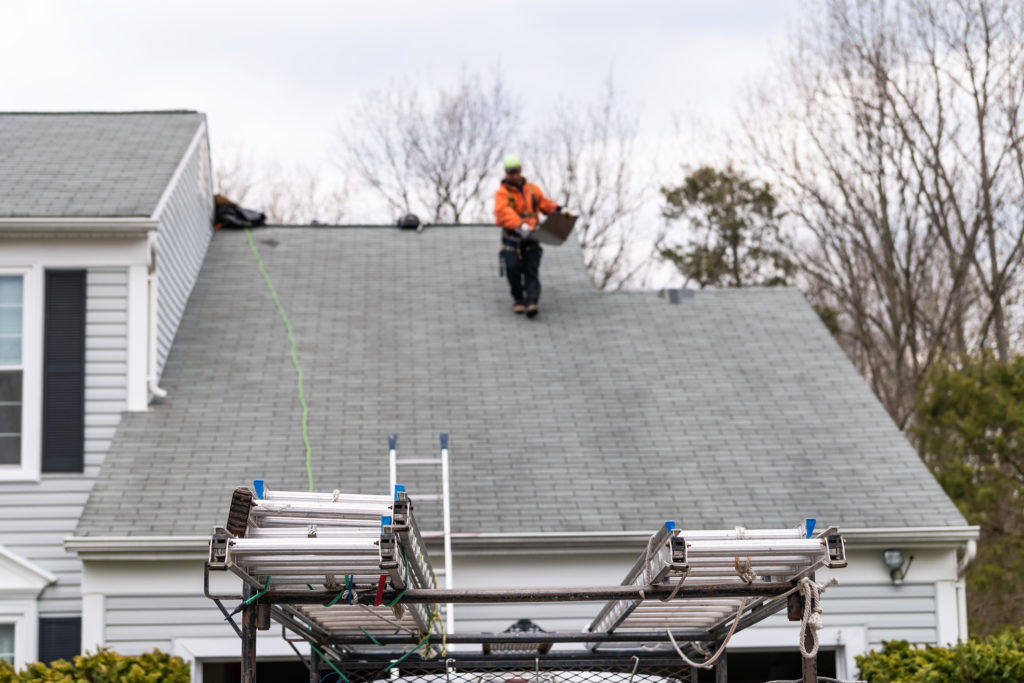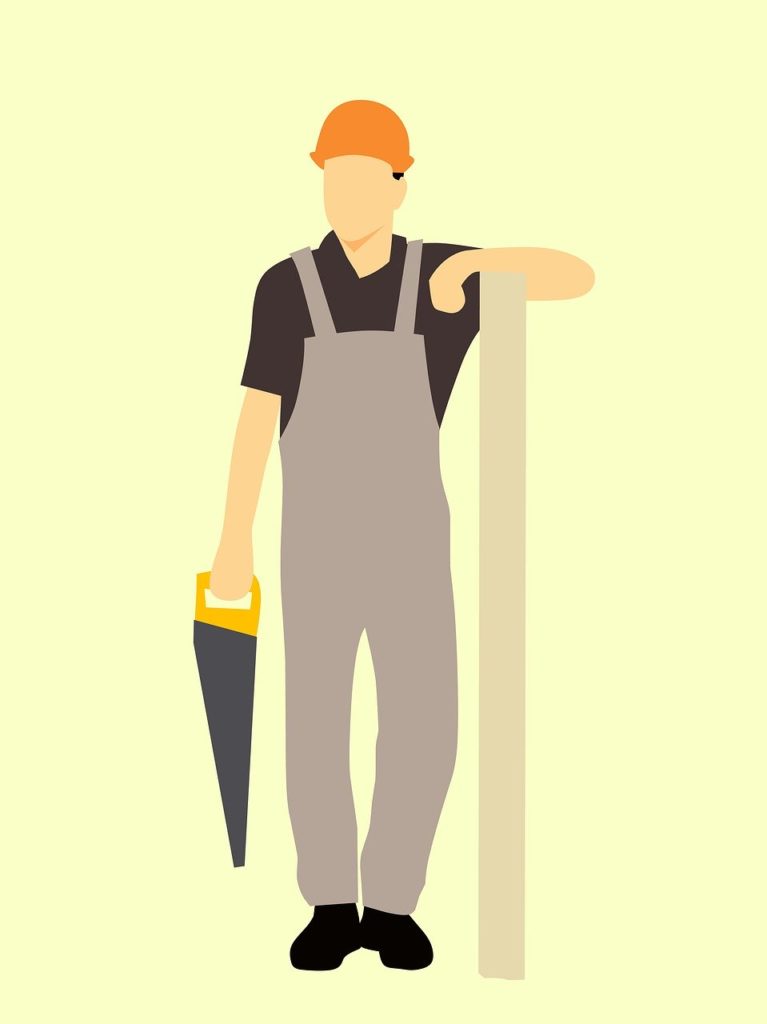Your roof is one of the most important parts of your house. When functioning properly, it protects the rest of the home from water damage and being exposed to the elements. However, over time, your roof will start to show signs of wear and tear. It is easy to take for granted until it has a major problem, such as water intrusion or rot.
It’s better to be proactive and look for early signs a roof will need replacing to minimize repair costs and risks of injury or property damage. Proper upkeep of your home helps ensure that it stays in good condition to maximize future resale value, and protects you in the meantime. Don’t ignore these seven warning signs that it’s time to replace your roof.
1. Water Damage in the Upstairs or Attic
Moisture marks, brown, yellow, or grey stains, and peeling paint on walls and/or ceilings could all indicate a damaged, leaking roof. Also take a peek in your attic, where damp rafters or leaks could additionally point to roof damage. Although you are the first line of defense when it comes to spotting roof damage, be aware of your limitations. Call in a roofer for a professional inspection once a year. A basic inspection could save you thousands of dollars in roofing repair costs by spotting minor damage before it turns into a major problem. A trained professional also has the tools and safety techniques to get up on your roof and check for damage.
2. The Roof Has Outlived its Lifespan
How old is your existing roof? Depending on the material, the lifespan of a roof could be between 20 and 50 years, but it varies by the roofing material.
- Asphalt shingles tend to last anywhere from 10 to 20 years in Florida.
- Metal roofs are more expensive but require few repairs and last 30 to 50 years.
- Clay tiles also fare well in Florida and last 40 years on average.
You should know when your roof was installed so you can estimate the lifespan for your roof. If you’re not sure exactly when your roof was installed, you can check home improvement records to find out. It also depends on whether the old roof was removed and you only have one layer of shingles, and if it is properly ventilated. If the roof was installed over another layer or several layers and it is older than 20 years, chances are you need a new roof.
3. The Roof Sags
Sagging is a sign that trapped moisture has rotted away boards under the roof. A droopy, sagging roof is one that surely needs replacing before further damage occurs to your home. Check the surface for signs of trapped moisture, rotting boards, or sagging spots—especially at the lowest points in the roof.
A good way to see this is to stand back from your house, perhaps across the street, and look at it from different angles. A home’s roof should appear straight along its lines, so signs of sagging and slumping should be easily noticeable when it occurs.
4. Moss, Mold, or Fungi Have Taken Over
Moss, mold and fungi (such as mushrooms) indicate trapped moisture, which can ruin a roof. To do away with moss that collects in shaded corners of your roof, use a stiff brush but be careful to address any underlying problems. If obvious moss remains after brushing, contact a professional to get the roof properly inspected.
5. Curling or Buckling Shingles
When shingles start to curl or buckle, it’s a sign that they’re not longer properly attached and have likely already sustained damage. The curved surface can be caught by a strong wind, leading to further damage next time it storms. In some cases, a qualified roof repair company can replace specific shingles, but the problem can signal a larger problem.
6. Missing Shingles or Granules
In Florida, strong thunderstorms and hurricanes put a lot of strain on roofs. The extremely high winds often cause shingles to lift or fly off completely. Sometimes you can replace a shingle or two, but the potential for repair depends on the missing shingle’s location and the condition of those surrounding it.
7. Missing Flashing, Gutter Guards or Fascia
Similar to shingles, if any of the roof’s supporting structure is cracked or missing, it’s an immediate red flag. Proper support is needed to ensure the roof is structurally sound and will not be at risk of collapse.
8. You’re Frustrated by Your Cooling Bills
In Florida, keeping a home cool takes constant energy — sometimes, almost year-round. There are several ways that a good roof can help keep the cool air inside, reducing your energy bills. First, any leaks in the roof can allow air to escape. Second, the color and material of your roof can make a difference. Lighter colored tiles or reflective surfaces like a metal roof help to reflect the hot Florida sun. Adding solar panels to your roof is another great way to save electricity.
9. A Roofing Inspection Determines Repairs Aren’t Sufficient
You’ve done your part by having regular inspections performed on your roof, but some damage is beyond a minor fix. If a roofing contractor performs an inspection and finds systemic problems, replacing the roof can be more cost-effective than paying for repeated repairs.





